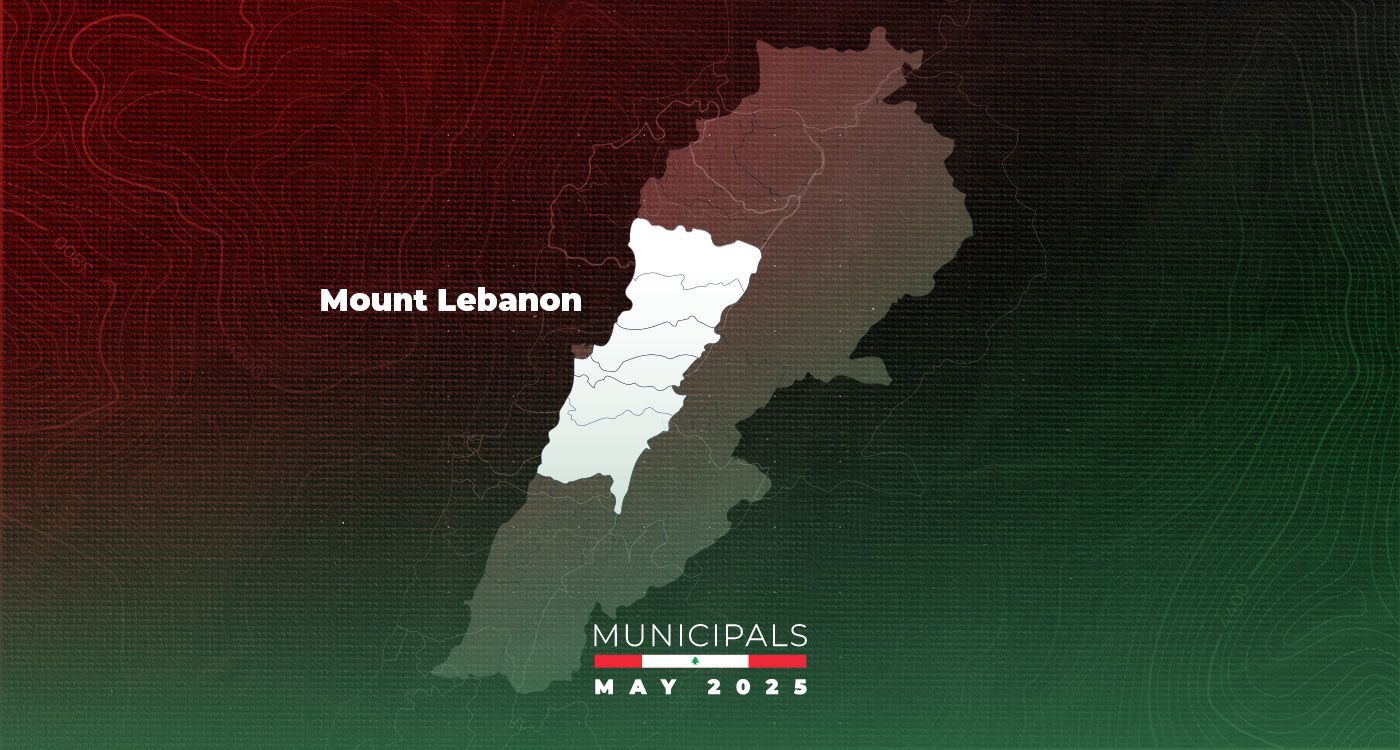
The long-awaited municipal and mukhtar elections are finally underway in Lebanon, nine years after the last vote and following three postponements.
On Sunday, May 4, 2025, 897,254 registered voters in Mount Lebanon will head to the polls, marking the start of the country’s electoral month. Traditionally active in both legislative and local contests, the Druze-Christian mountain region is once again expected to set the tone—despite a broader sense of national disengagement.
Across the region, 7,252 candidates—of whom 10.8% are women—are vying for seats in 333 municipal councils, while 845 mukhtar positions are also on the ballot.
Although these elections are often family-driven—particularly in smaller towns—they clearly serve as a political barometer, coming just one year ahead of the first parliamentary elections under President Joseph Aoun, and notably after Hezbollah’s defeat last autumn.
Attention is turning to several key battlegrounds, largely due to the eclectic, and at times uneasy, alliances that have emerged.
Jbeil (Byblos): A Historic Electoral Battle
In the Jbeil district, the historic city of Byblos is expected to remain under the influence of the former head of the municipal council, Ziad Hawat, a Lebanese Forces MP since 2018. Opposing his leading list is a coalition backed by the Free Patriotic Movement and former March 14 coordinator Fares Souhaid. Though now more withdrawn from the political front line, Souhaid frames his stance as a rejection of parties seeking to dominate elections that, in his view, should remain rooted in local and family-based dynamics.
Jounieh (Keserwan): A New Political Landscape
Further south, in the Keserwan district, Jounieh, often dubbed the capital of Marounistan, is once again reshaping Lebanon’s political map. After the orange tsunami of 2005, Keserwan, and more specifically Jounieh, gradually shifted its loyalties, notably toward the Frem camp. Today, an eclectic alliance has taken shape, uniting Farid Haykal el-Khazen—an MP formerly affiliated with the Marada Movement—MP Neemat Frem, the Lebanese Forces and former parliamentarian Mansour el-Bon. The coalition is yet another illustration of how Lebanese politics continues to revolve around shifting, opportunistic alliances.
Jdeideh–Bauchrieh–Sed el-Bauchrieh (Metn): A Decisive Election
In Metn, the old 8 March vs. 14 March divide appears to have resurfaced, particularly in Jdeideh–Bauchrieh–Sed el-Bauchrieh—the second-largest municipality after Beirut. Two main coalitions are vying for control: one bringing together the Kataeb, the Lebanese Forces and MP Ibrahim Kanaan, a former heavyweight in the Free Patriotic Movement; the other backed by Gebran Bassil’s party, Michel Elias el-Murr, the Armenian Tashnaq movement and the Amal-Hezbollah alliance.
Baabda: Eyes on the Southern Suburbs of Beirut
In Baabda, all eyes are on the southern suburbs of Beirut, where key municipalities—long dominated by Hezbollah—have been left in ruins by the destructive war initiated by the pro-Iranian group.
Municipal Federation: Strategic Leverage and Political Stakes
Yet the real stakes—despite the local nature of these elections—lie in the control of municipal federations, which political parties are vying to dominate ahead of next year’s parliamentary vote. These contests go beyond local governance; they reflect the intricate dynamics of Lebanese politics, where every ballot cast echoes far beyond the municipal level.










Comments